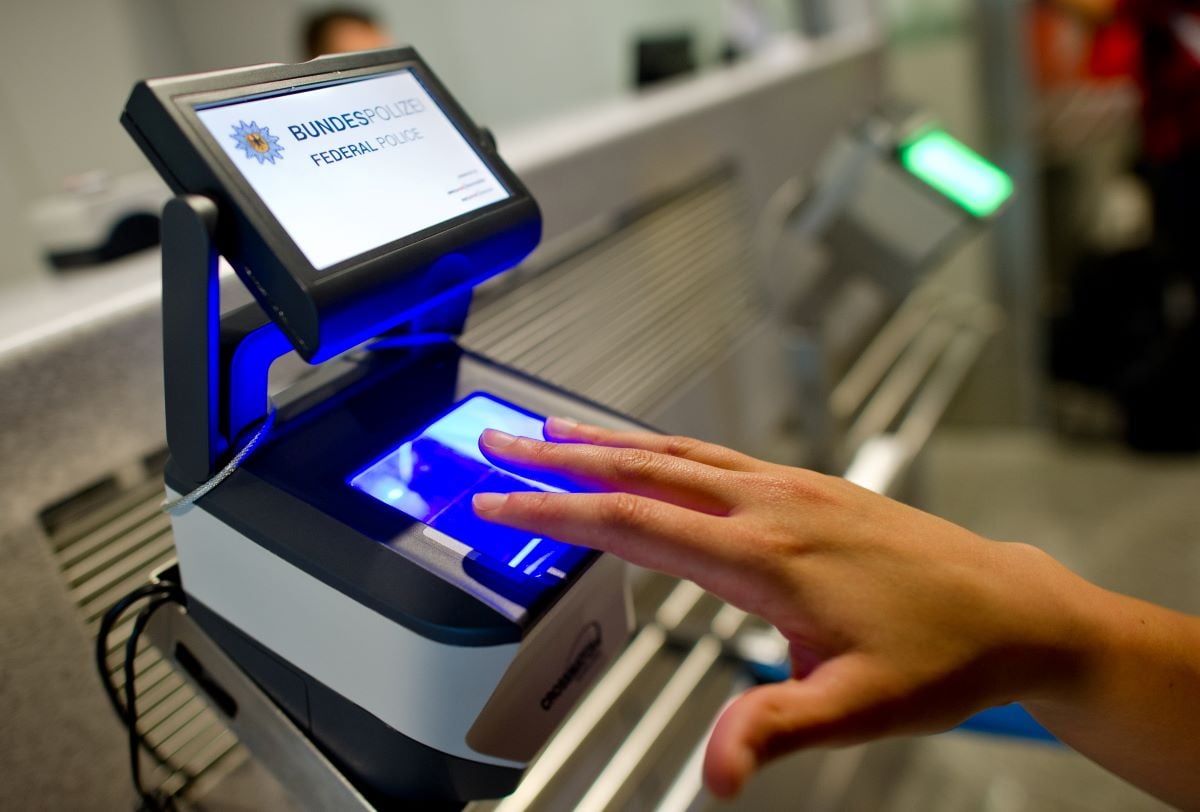Whether you live in Germany, or hope to visit in the near future, there are plenty of changes coming up in the coming months.
General driving changes
A significant change is the planned increase in the CO2 tax. This tax, which aims to help Germany achieve climate targets, will go up from €45 to €50 per tonne. It will have an impact on the price of petrol, oil and gas, driving up travel as well as heating costs.
Drivers with an orange-coloured TÜV car inspection sticker will have to get their general inspection carried out in 2025. Cars that make the cut will receive a blue sticker.
Another change that drivers in Germany may have to prepare for is rising car insurance premiums. Experts say they could increase by up to 20 percent.
Paper licences on the way out
Paper driving licences in Germany are being phased out.
As part of the so-called 'driving licence exchange', all drivers (with the exception of those born in 1953 or earlier) have to exchange their paper driving licence for a card by January 19th 2025 at the latest.
The background to this is an EU directive which stipulates that all driving licences must be forgery-proof and standardised throughout the EU in future. The process started in 2022 and has to be completed by 2033.
Local transport and long-distance trains
People who have the nationwide Deutschlandticket will have to dig deeper into their pockets from January.
The cost of the travel pass, which allows for travel on local public transport across Germany, will be €58 instead of €49 per month.
Meanwhile, tickets for other train journeys from Deutsche Bahn will also increase as part of the winter timetable. After the timetable change on December 15th ticket prices will be raised particularly on 'Flex fares'. Commuter season tickets and the BahnCard 100 prices will also go up.
You can also expect some route changes, including extra ICE Sprinter services between Berlin and Frankfurt. Additionally, there are new international connections. The highlight is the daily direct connection between Berlin and Paris - via Frankfurt, Karlsruhe and Strasbourg, launching just before the turn of the year, on December 16th.
READ ALSO:
- What to know about Germany's long-distance train service changes
- What we know so far about the Deutschlandticket's price hike
New flights
Several airlines have announced cuts to services from German airports, as bosses say they are facing difficulties such as increased taxes and fees.
But there are also some new flight routes. For example, from summer 2025, Discover Airlines will expand its long-haul routes from Frankfurt and Munich. It will include four weekly flights between Frankfurt and Minneapolis, Minnesota from May 2025.
Condor also plans new daily flights between Frankfurt and Rome, Milan, Prague, Vienna and Zurich.
And budget airline EasyJet plans to resume flight operations from Düsseldorf from summer 2025.
READ ALSO: The new direct flights to and from Germany in 2025
EU visa and passport changes
Firstly, note that these changes were supposed to come into force in 2022, then in 2023, then in November 2024. They have been repeatedly delayed because of a lack of infrastructure and fears of border chaos, especially at the UK-France border.
The changes are now set to be introduced in 2025 - EES in the first half of the year and then ETIAS six months later. There is, however, no guarantee that they won't be delayed again.
You can find a full explanation of the changes HERE, but here's what they mean in brief;
EES - Entry & Exit System, this is basically enhanced passport scanning, with the passenger's fingerprints and facial scans required. The first time that a passenger travels after the introduction, they will be required to complete EES 'pre-registration' at their port, airport of station of departure.
These checks will apply only when crossing an EU external border, not for travel within the EU/EEA itself, and do not apply to anyone travelling on an EU/EEA passport, or anyone with residency in an EU/EEA country (for example if you have a Blue Card).

ETIAS - this one mainly affects non-EU nationals travelling to an EU country on holiday. It does not apply to anyone travelling on an EU/EEA passport, or anyone who has a visa or residency permit for an EU/EEA country.
It is a visa waiver, which must be applied for online in advance. Once granted it is valid for three years - it costs €7 but is free for over 70s and under 18s. It is similar to the ESTA visa waiver required to visit the USA.
READ ALSO: How to prepare for travel under Europe's new EES and ETIAS rules
UK travel
The EU's extra visas and passport checks might be fraught with uncertainty, but British plans to introduce an extra visa waiver have already begun and are due to be rolled out to everyone in 2025.
The UK's ETA is similar to the EU's planned ETIAS scheme (and to the ESTA visa which has been required for years in order to visit the USA) - a £10 visa waiver that must be applied for online in advance, and then lasts for two years.
It is already required for travellers from some nations, but in 2025 the rollout is due to be completed.
From January 8th it will be required for all non-EU nationals entering the UK (with the exception of anyone travelling on a UK passport), and then from April 2nd it will also be required for all EU nationals, with the exception of anyone travelling on a Irish passport.
By the time the rollout is complete, an ETA will be required for anyone entering the UK, for any reason, unless they are travelling on a UK or Irish passport. Dual nationals should note that you are treated according to the passport you are using for travel - so if you are a German-British dual national but are using your German passport, you will need an ETA.
More details can be found HERE.
New tests for motorhomes
From June 19th 2025, motorhomes and caravans equipped with a liquefied petroleum gas system in Germany must be inspected every two years, independently of the general inspection.
The safe functioning and position of the gas system and its devices should be checked. The gas test can be carried out separately or together with the general inspection and costs on average between €40 and €80.
Changes in Berlin
There are a few specific changes concerning the German capital.
End of the €29 ticket - Due to budget cuts, Berlin's local government announced in November it will cancel the monthly €29 ticket.
The ticket subscription, known as the 'Berlin-Abo', was introduced by the Senate in July this year as a cheaper alternative to the Deutschlandticket. It works in Berlin's 'AB' central zones.

The pass is an annual subscription, meaning holders are not able to cancel it for at least 12 months after they sign up.
It is still unclear whether people who already have the subscription will be able to use it until the end of their agreed valid period.
Senator for Economic Affairs Franziska Giffey (SPD) initially said all subscriptions already taken out are to run until the end of the valid period. However, there has been no confirmation of this.
A notice on the BVG website says: "We are currently in talks with the responsible Senate administration about the further procedure with the Berlin-Abo. We are working on the best possible solution for our customers."
READ ALSO: Why Berlin is set to cancel €29 travel pass
Tourist tax - The city tax for tourists will be increased from 5 percent to 7.5 percent of the room rate, Berlin political leaders announced as part of the cuts. It is unclear when this rise will come into force.
With additional reporting by Emma Pearson

Comments (1)